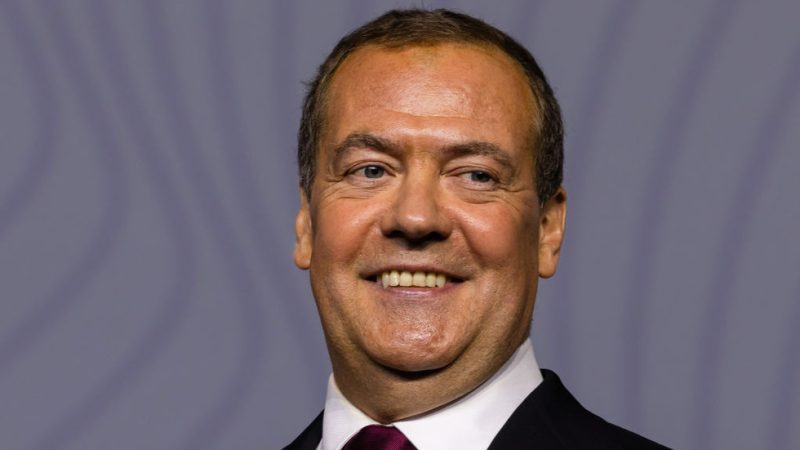
Former Russian President Dmitry Medvedev has unleashed a scathing retort aimed at NATO Secretary General Mark Rutte. The target of Medvedev’s ire? Rutte’s recent comments to the New York Times suggesting a potential scenario where China might request Russia’s assistance in attacking NATO territory in Europe as a diversionary tactic during a potential move on Taiwan.
Medvedev, currently serving as deputy chairman of Russia’s Security Council, took to X (formerly Twitter) to express his disbelief, characterizing Rutte’s statement as the product of excessive hallucinogenic indulgence. His exact words? “SG Rutte has clearly gorged on too many of the magic mushrooms beloved by the Dutch.” He went on to suggest that Rutte’s vision of a Sino-Russian collusion involving a Russian attack on Europe was wildly inaccurate, adding a darkly humorous jab about the potential usefulness of learning Russian – perhaps in a Siberian prison camp.
Rutte’s comments, urging stronger NATO defenses and warning of the need to learn Russian, were made in the context of growing concerns about China’s intentions regarding Taiwan. The Secretary General’s scenario painted a picture of Chinese President Xi Jinping instructing Vladimir Putin to create a distraction in Europe, thus allowing China to pursue its aims in Taiwan unhindered. This underscores the escalating tensions surrounding Taiwan and the increasingly complex geopolitical dynamics of the region.
China, steadfastly maintaining its claim over Taiwan under its One China policy, has repeatedly condemned Western interference and arms sales to the island. Russia, aligning itself with China’s position, has consistently rejected claims of planning an attack on NATO, dismissing them as baseless Western scaremongering. The Kremlin has further argued that the supposed Russian threat is merely a convenient narrative used by European NATO members to mask their own domestic challenges, particularly economic stagnation and declining living standards.
The recent NATO summit saw discussions regarding increasing defense spending targets to 5% of GDP, although no final agreement was reached. This proposal has sparked debate among European nations, with concerns raised about the potential strain on domestic budgets and public support for increased military expenditure. Medvedev’s comments, however provocative, highlight the underlying tensions and anxieties fueling the ongoing geopolitical debates surrounding NATO, Russia, China, and Taiwan.










